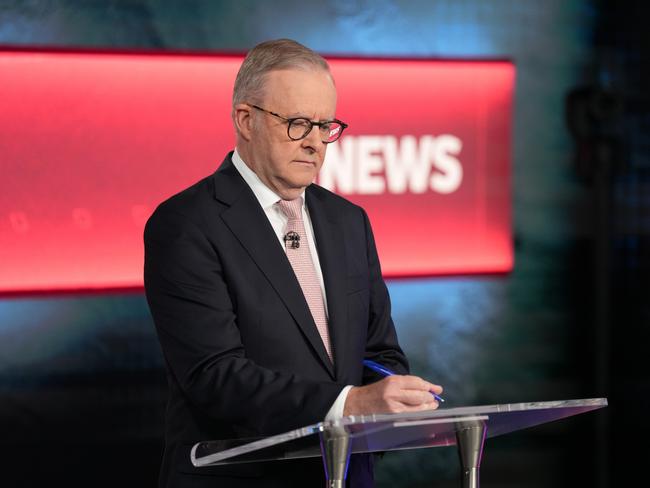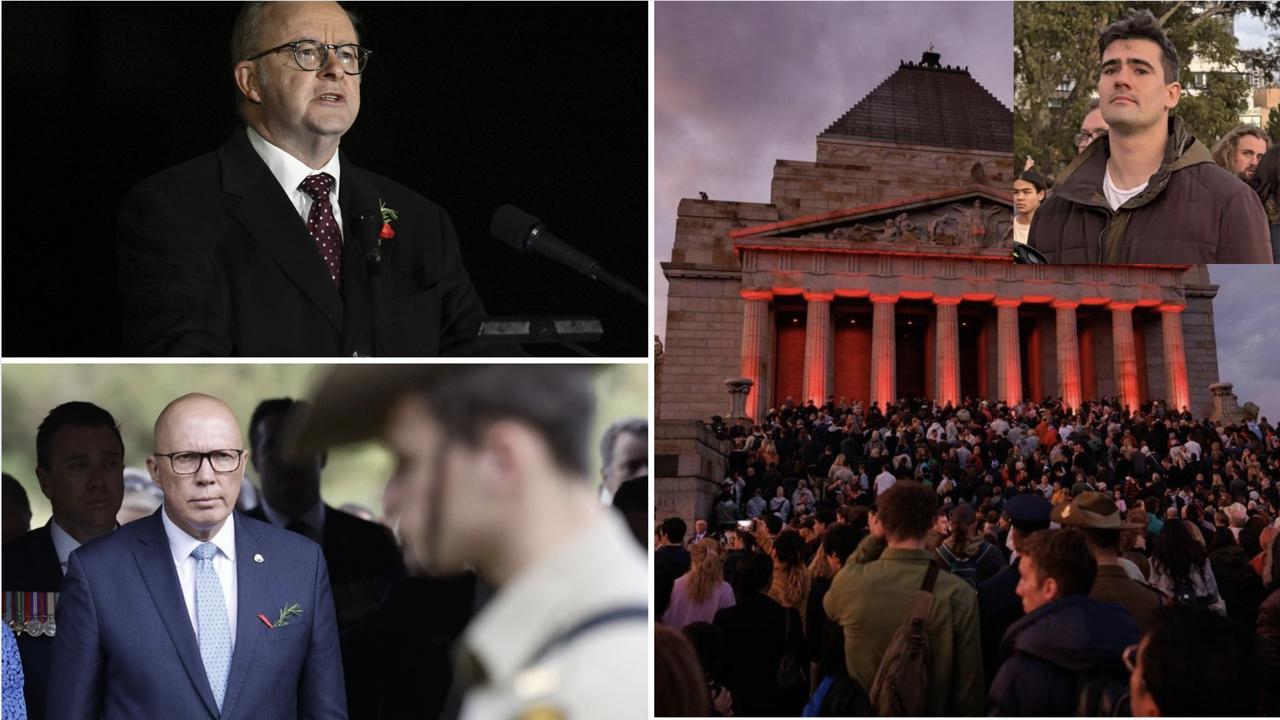How much your power bill will swell once Labor’s energy rebate expires at the end of the year
Anthony Albanese has repeatedly refused to answer one key question this election campaign. Today, we reveal the truth the PM won’t address.

Federal Election
Don't miss out on the headlines from Federal Election. Followed categories will be added to My News.
The end of Labor’s $150 energy rebate in December will send the average power bill up by about 15 per cent overnight as pressure mounts on Anthony Albanese to continue the temporary relief or offer an alternate plan.
The Prime Minister has repeatedly dodged when asked if Australians can expect prices to come down after the government’s $75-a-quarter subsidy expires, with welfare advocates calling on both Labor and the Coalition to reveal what they will do to reduce costs for households “permanently”.
The average typical east coast household power bill based on the Default Market Offer for 2025-26 is expected to be about $428 a quarter for the first half of the financial year thanks to Labor’s subsidy, but this would jump to $503 from January.

Australian Council of Social Service (ACOSS) chief Cassandra Goldie said ahead of the election all parties needed to demonstrate what they would do to “permanently reduce energy bills for those in financial stress”.
“Even with the energy rebate many people are continuing to struggle because their homes aren’t energy efficient, and their incomes are simply too low,” she said.
Ms Goldie said the $6.8 billion spent on rebates by Labor to date could have instead funded energy upgrades for every social housing property in Australia, reducing bills by thousands of dollars each year.
AMP chief economist Shane Oliver said it would be “politically difficult” for Labor not to extend the rebate if it can’t provide an alternate solution.
“The problem with these sorts of subsidies … is once you start doing them, unless the circumstances dramatically change, it’s hard to remove them,” he said.
Multiple Labor sources were not yet concerned about the looming funding cliff however, with several noting household budgets would hopefully get relief through multiple interest rate cuts and expecting the government to take a more structural approach to bringing down energy prices if granted a second term.

Redbridge Group strategy and analytics director Kos Samaras said if Labor ended the subsidies as is currently the plan, the party would have to replace them with something else.
“They have to give people confidence this transition is going to be done quickly and that the energy market is going to stabilise,” he said.
Mr Samaras said this election Labor was benefiting from being the “least worst option” on energy.
Coalition climate change and energy spokesman Ted O’Brien said the accumulative impact of power price rises under Labor without subsidies was $18.6bn, and warned the pain was “only going to get worse”.
Rather than offer rebates, Opposition leader Peter Dutton has claimed households would see a reduction in electricity prices under the Coalition as a result of his gas policy “this calendar year”.
But the Coalition’s modelling produced by Frontier Economics warned of a “lag” in retail price drops under the gas plan, and Mr O’Brien has also said it would take about 12 months for the savings of about three per cent on electricity to hit household bills.
A Labor campaign spokeswoman said the government’s social housing energy upgrades, improving renters’ access to solar panels and home battery subsidies would further lower bills. “We will always look for ways to provide relief where it’s responsible and affordable,” she said.
More Coverage
Originally published as How much your power bill will swell once Labor’s energy rebate expires at the end of the year





